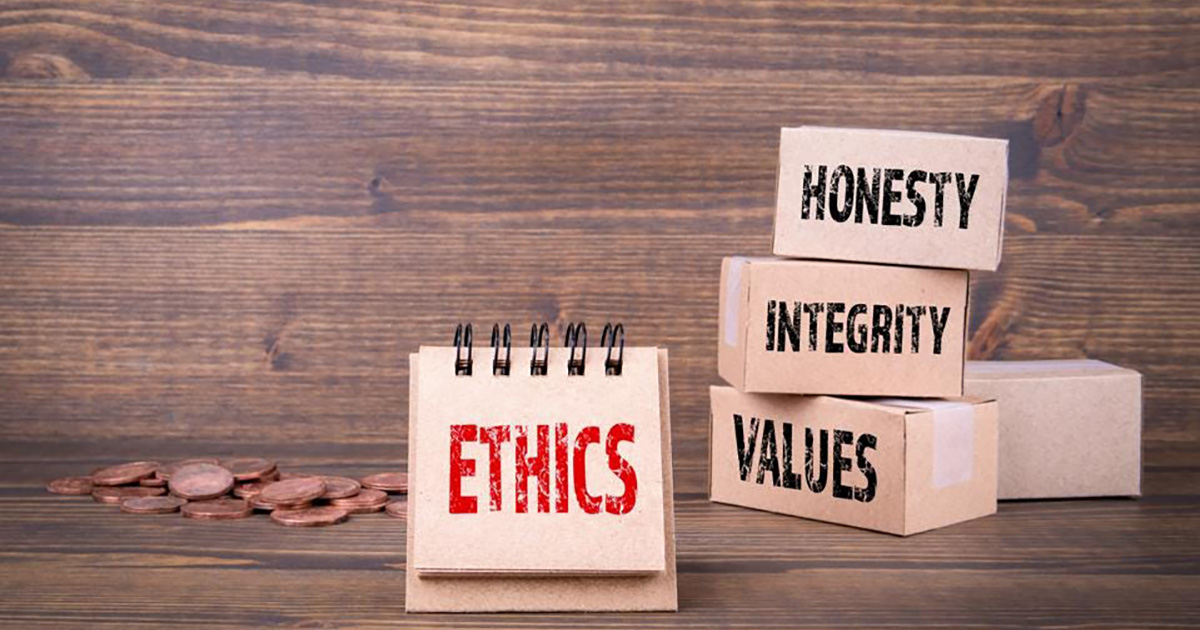
In the business world, companies articulate their values in a code of conduct. They display them prominently in employee handbooks, on their websites, and in human resource departments around the globe.
In the rough and tumble of business competitiveness, these corporate codes are sometimes brushed aside as just so many words. At times, the platitudes pale against the backdrop of real world problems or organizational complexity.
It’s hard to “put people ahead of profits” when shareholders press for short-term results or boards demand on-going growth. Practicing “transparency” sounds great, but what about protecting confidentiality? If the principle isn’t clear and compelling to you, your conscience won’t cry out when you fail to follow it — especially when you face intense pressure about the bottom line.
Crafting your own code of conduct that will stand up under such pressures is an essential act of leadership.
As leaders in a post-pandemic workplace in which employees demand purpose along with the paychecks, drawing those ethical lines that we will not allow ourselves to cross is a crucial step in creating the positive work cultures we need.
Customers, too, insist that company leaders live by principles that align with their company’s stated values and will punish companies whose leaders don’t meet the bar.
Go Beyond The Generic
Personal codes of conduct are as old as the handshake. An earnest promise of “my word is my bond” served as a contract in a bygone era. Now we can Google up a generic code of conduct.
What was once driven by biblical imperatives, such as the Ten Commandments, can now be determined via algorithm-driven websites, such as Indeed, which offer templates for drafting your code of conduct.
Yet a fill-in-the-blanks code of ethics spit out by your computer is hardly the stuff of deep meaning or inner conviction.

Get beyond a template to create a truly meaningful personal Code of Conduct.
GETTY
Genuine personal codes don’t require employees or customers to hold us accountable. We generate them to hold ourselves accountable.
Many of us care about, if not feel bound by, a general set of values, such as integrity, kindness or honesty. We accept behavioral norms – don’t lie, don’t steal, don’t murder – that derive from religious texts. Some of us gain fulfillment from what we perceive as moral acts, such as donating to philanthropies at year end. We act accordingly.
Forget Google. Follow Your Inner Compass.
Yet how many of us have taken the time to look inside ourselves to assess which of these values are truly meaningful to us and whether they are sufficient to keep us on track when pressures intensify? Have we bothered to go the extra step to write them down? Do we revisit them from time to time to update them as our circumstances change? Codes lose their impact on us when they get stale.
As individuals, we hold our ethics and noble precepts as dear, but often mainly in theory. In real life, we make exceptions and then rationalize our actions. We rarely hold ourselves accountable for our transgressions. Instead, we justify them.
In a corporate setting, task forces or committees review company codes of conduct, build consensus around the values, and make them public. As individuals, by intentionally creating our personal Code of Conduct we force ourselves to reflect on our own core values, to articulate them, prioritize them and actively commit to them. This conviction enables us to be honest with ourselves before we deviate from them.
We need not channel Hammurabi or Moses. Indeed, a simple set of broad principles may offer a greater chance of applicability in our everyday lives rather than something we save for making the “big” decisions.
In the interest of practicing what I preach, I spent a quiet hour thinking about how I will hold myself accountable this year. Here is my list:
- To refrain from harmful speech and to practice kind speech.
- To refrain from taking that which is not given and to practice generosity.
- To practice responsibility in all relationships, including hospitality to visitors.
- To practice mindfulness before saying yes or no.
- To honor the dignity, worth, power and vulnerability of each person.
- To practice curiosity when I don’t understand, express opposition when I disagree, and stand up for people and policies that need my support.
- To practice love, compassion and presence to my close friends and family by prioritizing attendance at life events that are important to them. To not use “busyness” as an excuse not to attend.
What’s a principle on your list? I’d love to hear them. Tweet your thoughts to me @ericaarielfox if you feel comfortable sharing them.